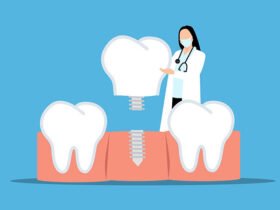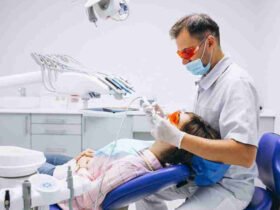Addiction stories often focus on the dramatic fall the rock bottom, the chaos, the intervention. But what happens after that? What does life look like when the dust settles, the rehab stint is over, and there’s no dramatic soundtrack playing in the background? For many women, the real story begins not in addiction but in recovery. And it’s far more complicated, messy, and beautiful than most people realize.
The Myth of “Happily Ever After” in Recovery
There’s a common misconception that once someone gets sober, life magically clicks into place. But recovery isn’t a linear path to perfection—it’s an ongoing process that requires constant self-reflection, adjustment, and resilience. For women, this journey is often layered with unique challenges, from societal expectations to the heavy emotional labor of managing families, careers, and relationships.
Starting over after addiction doesn’t mean becoming a brand-new person. It means reconnecting with parts of yourself that got buried under years of coping mechanisms. It’s waking up to emotions you haven’t felt in a long time—grief, anger, joy, and even boredom—and learning how to sit with them without reaching for an escape. That’s the part people don’t talk about enough: the raw, unfiltered emotions that come flooding back when the numbing stops.
Why Women’s Recovery Often Looks Different
Addiction doesn’t discriminate, but recovery does. The resources, support systems, and stigmas women face in recovery are often very different from those that men experience. For one, women are more likely to carry the burden of caregiving responsibilities, which can make seeking treatment feel impossible. Who’s going to watch the kids? What will people think? These questions create barriers long before a woman even steps into a recovery space.
There’s also the weight of shame. Society tends to judge women more harshly for struggling with addiction, especially if they’re mothers. The expectation is that women should naturally be nurturing, selfless, and in control—traits that seem to contradict the messy realities of addiction. But addiction isn’t a moral failure; it’s a complex health issue, and recovery is not about redeeming oneself. It’s about healing.
Access to the right kind of support makes all the difference. Gender-specific programs understand these nuances and create environments where women can address not just their substance use but the underlying issues—trauma, mental health struggles, relationship dynamics—that fuel addiction in the first place.
The Importance of Community in Recovery
One of the most overlooked aspects of recovery is the role of connection. Addiction thrives in isolation, but recovery grows in community. Finding a support system isn’t just helpful; it’s essential. Whether it’s therapy, support groups, or friendships built on honesty rather than pretense, connection helps break the cycle of secrecy and shame.
But not all recovery communities are created equal. Some women find healing in traditional 12-step programs, while others prefer holistic approaches that focus on mind-body wellness. The key is finding a space where vulnerability is met with understanding, not judgment.
This is where specialized treatment centers come in. Whether it’s from a womens rehab near Austin, D.C., or anywhere in between, the environment can shape the recovery experience. These centers often offer more than just substance abuse treatment—they address the whole person, providing tools to rebuild a life that’s meaningful, fulfilling, and grounded in authenticity.
The Reality of Relapse (And Why It’s Not the End)
Relapse is one of the most misunderstood parts of recovery. It’s often framed as failure, but the truth is, relapse can be part of the process. It doesn’t erase progress or define someone’s worth. Recovery isn’t about perfection; it’s about persistence. Every setback is an opportunity to learn more about triggers, coping mechanisms, and what’s needed to stay on track.
For many women, relapse comes with an extra dose of shame, especially if they’re in caregiving roles. The guilt can be overwhelming, making it tempting to spiral further instead of reaching out for help. But relapse doesn’t mean starting over from scratch. It’s a sign that something needs attention—whether that’s stress management, support systems, or untreated trauma. Recognizing this can shift the focus from shame to growth.
Redefining Success in Recovery
What does success in recovery look like? It’s not just about the number of days sober. It’s about quality of life—feeling connected, having purpose, and managing emotions without substances. For some, it’s rebuilding relationships with family. For others, it’s setting boundaries for the first time. Sometimes, it’s simply making it through the day without using.
Recovery isn’t one-size-fits-all, and success doesn’t look the same for everyone. Some women find joy in big milestones new jobs, new relationships, new opportunities. Others find it in the quiet victories getting out of bed on a hard day, saying no when it matters, or feeling proud of themselves for the first time in years.
It’s also about self-compassion. Many women in recovery struggle with perfectionism, expecting themselves to heal quickly and flawlessly. But healing is messy. It’s full of detours, setbacks, and uncomfortable growth. The goal isn’t to be perfect; it’s to be real.
Life Beyond the Label
Addiction doesn’t define anyone. It’s part of the story, but it’s not the whole story. Recovery isn’t about erasing the past; it’s about building a future that feels worth staying present for. It’s about reclaiming identity, rediscovering passions, and learning how to live—not just survive.
For women navigating recovery, the road may be challenging, but it’s also full of potential. Every day is a new chance to grow, to connect, to find joy in places that once felt out of reach. The story doesn’t end with addiction—it begins with recovery. And that’s a story worth telling.










